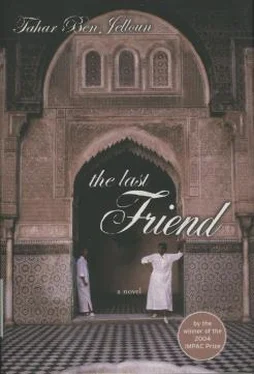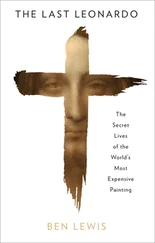Student activism was widespread, but Mamed and I no longer wanted to be involved. We were considered "veteran conspirators," and the secret police watched our every move. Mamed trusted no one. That didn't stop him from spending time with a guy who was short, ugly, and dirty, but intelligent. This guy was curious about everything, and he went out of his way to help Mamed. I had a bad feeling about him. He was too friendly to be honest. I asked him about his job. He was vague and secretive. He claimed to work for an advertising company. In fact, he was really a cop. We found this out later when the Ministry of the Interior appointed him head of the censorship bureau. The whole thing made Mamed sick. He couldn't get over it. He was mad at himself for having been taken in. "To think he talked to me about Kant, Heidegger, film, and art, plus he was such an ardent critic of the government and the police!" Later, this spy made a career in intelligence. His dream was to be a writer. He wrote a few lines of poetry, published them at his own expense, and distributed them to government agencies. On a Moroccan television
show, he was introduced as a promising young Francophone writer.
The undercover agent had clearly been jealous of our friendship. Mamed listened to him without taking him seriously, but continued seeing him, until the guy made the mistake of criticizing me and my family.
10
Mamed married ghita even before he finished the course-work for his medical specialization in pulmonology. His parents were upset, and they asked me to do my best to convince him to wait. They considered me Mamed's best friend, someone he held in great esteem. Not surprisingly, I had no luck with Mamed. He was stubborn, and became resentful whenever anyone tried to make him change his mind. This rigidity annoyed me. We avoided talking about it, because when we did, he lost his sense of humor and even his ability to think straight. One day, after a discussion in which he had to admit he was wrong, he became unusually angry, saying: "Sometimes I wonder why we're friends, since we never agree about anything." I didn't take this comment seriously. He wasn't making any sense. For once I was the one to bring up his faults, something he never hesitated to do with me. We never
seemed able to give each other a break. But somehow things were never even.
Mamed and Ghita s wedding took place as planned. I was the couples closest friend. Ghita, a pretty brunette, was an unemployed sociologist. I knew Mamed wanted to have a family; he had sown his wild oats. But I was surprised that he decided so quickly. He told me it was not love at first sight. It had developed slowly — slowly but surely. He had a theory about married life that was a mixture of cliche and real reflection. For him, love blossomed through daily cohabitation. He cited his parents as an example. According to him, it was better to choose a virtuous woman rather than a great beauty who was arrogant and difficult. So Mamed settled down, and I was the only friend he continued to see on a regular basis. He had changed. He had gained weight, and he became irascible.
Little things made him angry. He no longer had any patience. Our time together was not as relaxed and easy as before. It seemed to bother him that I was still a bachelor.
I had no desire to settle down and marry a nice girl just to avoid being alone. When I met Soraya, it was love at first sight, an earthquake, a tempest in my heart, an avalanche of light and stars. Unlike Mamed, I chose beauty, which came with both arrogance and fickleness. Mamed refused to voice his opinion, claiming the issue was too personal to be discussed, even between close friends. Against the advice of my
parents, I married Soraya. Her mere presence made me deliriously happy. She was intelligent and shrewd, volatile and vivacious. I had one year of peace and happiness with Soraya. She never argued with me, and she was good to my elderly parents. She was sweet and loving in public, and even became friends with Ghita, which pleased Mamed. He wanted to hire Soraya as an assistant in his clinic. I refused, thinking this might someday jeopardize our friendship. Mamed finally agreed with me, and instead hired a young nurse who wasn't particularly gracious but very efficient.
After finishing my degree, I was appointed professor of history and geography in Larache, a small coastal fishing town eighty kilometers south of Tangier. I commuted to work, as Soraya's parents had lent us an apartment in a building they owned. They refused to rent it, claiming that Moroccans were unreliable tenants. My wife worked as a nurse in the local Red Cross Society. We lived a petit-bourgeois existence, with limited horizons and limited ambitions. Once in a while, Ramon came to visit. He had married a Moroccan woman and converted to Islam. He now called himself Ab-derrahim, and he spoke Arabic. He said, "Ramon, Rahim— it's practically the same thing." But to us, he was still Ramon.
11
mamed and I had a weekly ritual: we met in a cafe every Sunday morning between eight and nine. First we discussed current events, then turned to gossip. From time to time, some of our old high school classmates or teachers would join us. We always avoided making political observations. We knew that police informants lurked among the cafegoers. Those were the days when Morocco lived under a sort of martial law, under which opponents of the government were arrested. Some disappeared forever. Faced with their families, the police would pretend to look for them, knowing, of course, that another branch of the police had taken care of them for good. We were haunted by this idea of disappearing forever, vanishing into thin air, reduced to a mound of earth without being officially declared dead. Lost and never found. Lost and never buried. I remember a woman who went crazy, wandering the streets with a photo of her son, refusing to go
home until she found him. She slept on the sidewalk in front of the police headquarters. One day she vanished. People said the police had made her disappear, just like her son. We lived with this fear in our guts, but we never talked about it.
Mamed and I shared books and records. Some evenings we would have a drink together, either at his place or mine. Mamed liked only cheap whisky, which he drowned in soda water. These days he smoked brown-tobacco Casa-Sport cigarettes. His famous Favorites had been taken off the market, due to a documentable increase in lung cancer among those who smoked them. 1 got by with a little bit of Galavuiline, a pure malt whisky I bought under the table from a Jewish grocer who got it from Ceuta.When Ramon joined us, he drank Coke. Like a lot of converts, he was serious about his religion. He no longer drank rioja or ate Spanish ham. We teased him about it, and he laughed.
Mamed and I talked, argued, criticized each other, engaged in wordplay and dark humor. He was much better than I was at verbal banter, but I knew more about film and poetry. These exchanges were supposed to keep our minds active so we wouldn't fall into the lethargy most people in Tangier suffered from. Especially in those days, when everybody lived in wariness and fear. A diffuse fear, without name or shape.
Our wives saw each other, but they never became close friends. Mamed and I rarely talked about our marital problems. We avoided it because we knew instinctively that noth-
ing good could come from such discussions. He intuited my difficulties, and I his. We remained supportive of each other, but had no need to say it or to show it publicly. There were usually no subjects that were taboo in our conversations, but we must have been thinking of Bob Marley's misogynist "No Woman, No Cry." In Morocco, as everybody knew, it was the men who made the women cry. They cried in silence. Women did not have the right to complain. In friendship, as in love, everyone needs an element of mystery. This was less true of me than of Mamed, who loved secrecy, perhaps a weakness acquired during his Communist days.
Читать дальше












